Lolo Houbein
Dutch-Australian author and conservationist
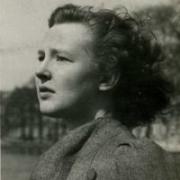
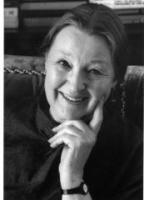
Lolo Houbein, of Aldgate in the Adelaide Hills, came to Australia from The Netherlands with her husband and children in 1958 at the age of 24. She did not speak English, yet eleven years later she matriculated as an adult student and Lolo is now an accomplished and prolific writer in English, with an extensive portfolio and an impressive list of awards and commendations.
In 1988 a critic described one of her works as an “elegant testimony to her command of the learned language”.[i]
In addition she has written a number of short pieces in Dutch which have been published in journals in The Netherlands. Lolo achieved her Bachelor of Arts in Australian Literature, Anthropology and Classical Studies through the University of Adelaide in 1975
and then continued her studies at the University of Papua New Guinea before gaining her Graduate Diploma in Teaching from the Adelaide College of Advanced Education in 1978.
The genre of her novels, histories, poetry, essays and short stories reflects sensitivity to a life enriched by travel, cultures, migration and the environment.
An autobiography of race and identity, entitled Wrong Face in the Mirror, earned her the Dirk Hartog Literary Award for a work of migrant literature.
Her name emerged on the literary scene during Australia’s Bicentenary Year in 1988, with prizes awarded for two separate works.
Wrong Face in the Mirror then became a set text for a course in Australian Autobiography at the University of Queensland and was translated into Dutch with the title Vreemdeling in the Spiegel.
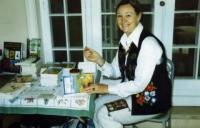

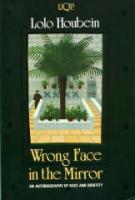
Excerpts have subsequently appeared in various publications and the manuscript has been lodged in the Dutch National Archives in The Hague in an archive entitled Nederlanders Overzee (The Dutch Overseas).
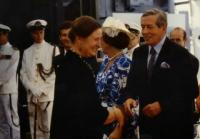
For her novel in manuscript entitled Walk a Barefoot Road, in which she depicted “with numbing clarity the alienation and solitude of the migrant”[ii], Lolo received the ABC/Bicentennial Fiction Award (the Kylie Tennant Award). It was also short listed for the Courier-Mail’s Brisbane Bicentennial Literary Competition and the novel was dramatised in 18 episodes on ABC National Radio during August and September in 1989. After the release of its second edition in 1990, a Walk a Barefoot Road exhibition of 30 hand-woven tapestries by artists from three states toured South Australia and Tasmania for most of 1991. In the same year, this novel was copied into Braille and onto cassettes for blind and handicapped readers by the Royal Blind Society of Sydney.
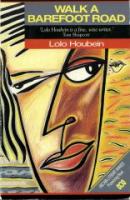
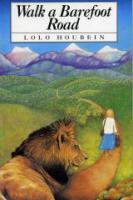
Lolo declares that the words flow best with a pen in her hand, yet her interests go well beyond the written word.
She tells budding writers to focus on the ‘good news’ but has also created some spectacularly good news of her own over the years.
Of the many involvements and achievements probably one of the most important ones was establishing Men of the Trees (South Australia), now Trees for Life, with Burr Dodd in 1981. This organisation grows trees and provides seeds to revegetate South Australia. Lolo recalls that it took several years of their lives working full time before there were sufficient skilled people with the available time to run the organisation. But it was worth the effort, for together they have changed the landscape of South Australia. In 2011 Trees for Life celebrated its 30th anniversary and 30 millionth tree planted.
The other project that ranks high for Lolo is Wrap With Love, a national organisation concerned for the millions of people in the world who are suffering exposure and extreme cold and whose members make warm wraps for as many as they can. She set up the South Australian branch in 1996 when she was living in Strathalbyn (S.A.) and was then its coordinator for six years. The organisation has now spread so widely, that it is now an autonomous movement in which people are self-motivated, finding ways to get their wraps to Sydney for distribution, and making contacts locally with people who travel or distribute to local organisations. She has lost count of the number of members who knit, crochet, weave or sew wraps but over the past ten years they have contributed 11,370 wraps and quilts.
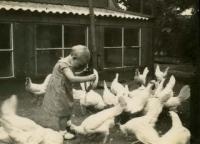
Preserving the environment and saving persecuted cockatoos and corellas are also high on Lolo’s agenda.
Yes, she has had her share of bird damage in the orchard and among the vegetables but believes that it is possible to learn to co-exist successfully, that life is a trade-off and that simple solutions can come from observing a species.
Lolo’s love of the world and its creatures reaches far and wide. Lolo feels connected with the cultures of Tibet, Papua New Guinea and the South Pacific and these have been the subject of some of her writings. Her 1999 book Tibetan Transit, Pilgrimage, History and Travel has a frontispiece quotation from the Dalai Lama and 31 photographs by Lolo herself.
She identifies with migrants and multicultural writers and compiled the first survey of multicultural writers in Australia in 1976. Her ten years of bibliographical research was incorporated in a Bibliography of Australian Multicultural Writers, compiled by Sneja Gunew, Lolo Houbein, Alexandra Karakostas-Seda and Jan Mahyuddin and published by Deakin University (1992).
This bibliography is included as a specialist data set in the Australian Literature database and Lolo’s related research papers and books have been acquired by Deakin University Geelong for their Special Collection in the university’s library.
A few of her latest books:
* One Magic Square: Grow Your Own Food on One Square Metre (Wakefield Press, Adelaide) 2008. In 4thprint. Named ‘Most Innovative Cook Book in Australia’ by Gourmand, Paris. Shortlisted for ‘Best Food Book’, Le Cordon Bleu 2011.
2009 North American Edition by The Experiment, New York. (In 2nd print.)
2010 New Zealand Edition by AWA, Wellington. (In 2nd print.)
2011 South African Edition by Jacana, Johannesburg.
* Island Girl, a young adult novel (Hybrid/available from Wakefield Press, Adelaide) 2009.
* Outside The Magic Square: A Handbook for Food Security (Wakefield Press, Adelaide) 2012.
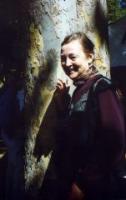
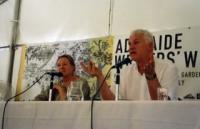
There is no doubt that Lolo Houbein has excelled on many fronts. Her work received official recognition in 2002 when she was awarded the Australian Medal for Services to Literature and the Environment.
Whilst she is leaving an indelible mark on literature in Australia, her worthy aspirations have caught the imagination of many people willing to carry forward her visions for a better world.
[i] O’Hearn, D.J., Overland, in a cover critique of Walk a Barefoot Road 1988, published by Middle Hill Books in Bridgewater, South Australia.
[ii] Ibid
Compiled: October 2006 by Elisabeth Anderson, South Australia.





















